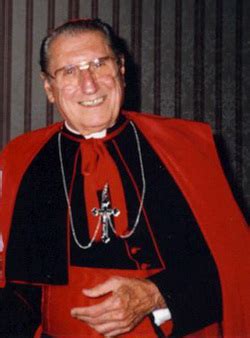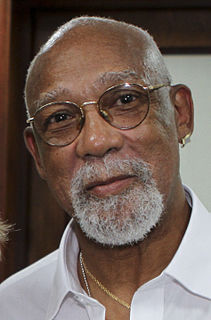A Quote by Timothy Radcliffe
The medieval Church believed that the resurrection of Christ marked a new time for all of humanity.
Related Quotes
We are living 'between the times' - the time of Christ's resurrection and the new age of the Spirit, and the time of fulfillment in Christ. Life in the Spirit is a pledge, a 'down-payment', on the final kingdom of shalom. In the meantime, we are to be signs of the kingdom which is, and which is coming.
I grew up in the church, Resurrection Baptist Church in Philadelphia, and my grandmother was that grandmother at the church, the one always at the church, always putting on the events. It was deeply instilled in me that every action, everything I create, everything I say and do in the world is inexorably bound to the lives of everybody I come in contact with - and it's my responsibility to put things into the world that have a positive influence on humanity.
The church has contributed nothing to civilization. It has progressed somewhat, and it has become a little more decent, in reflection of the movements of civilization that have taken place outside of the church and usually in the face of the strong opposition of the church. But the church has always resisted the process of civilization. It has struggled to the last ditch, by fair means and foul, to preserve as long as it could the vestiges of ancient and medieval theology, with all the puerile moralities and harsh customs and medieval styles of belief.
Being Christian without the Church doesn't make sense. That's why the great Paul VI, said that the most absurd dichotomy is loving Christ without the Church. To listen to Christ, but not the Church. To be with Christ, but stay at the margins of the Church. It's not possible. It's an absurd dichotomy.
...the only thing that makes the Church endurable is that it is somehow the body of Christ and that on this we are fed. It seems to be a fact that you have to suffer as much from the Church as for it but if you believe in the divinity of Christ, you have to cherish the world at the same time that you struggle to endure it.
If the resurrection of Jesus cannot be believed except by assenting to the fantastic descriptions included in the Gospels, then Christianity is doomed. For that view of resurrection is not believable, and if that is all there is, then Christianity, which depends upon the truth and authenticity of Jesus' resurrection, also is not believable.
But Christ could certainly not have established the Church. That is, the institution we now call by that name, for nothing resembling our present conception of the Church-with its sacraments, its hierarchy, and especially its claim to infallibility-is to be found in Christ's words or in the conception of the men of his time.
"Gospel preachers nowadays preach the gospel of the Crucifixion, the Apostles preached the gospel of the Resurrection as well. The Crucifixion loses its meaning without the Resurrection. Without the Resurrection the death of Christ was only the heroic death of a noble martyr; with the Resurrection it is the atoning death the Son of God. It shows that death to be of sufficient value to cover our sins, for it was the sacrifice of the Son of God."




































